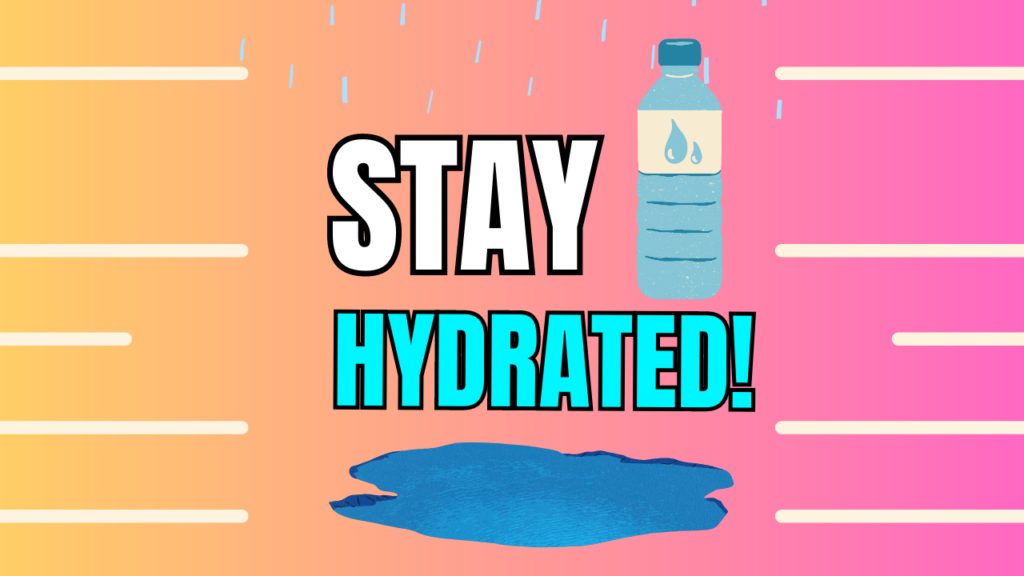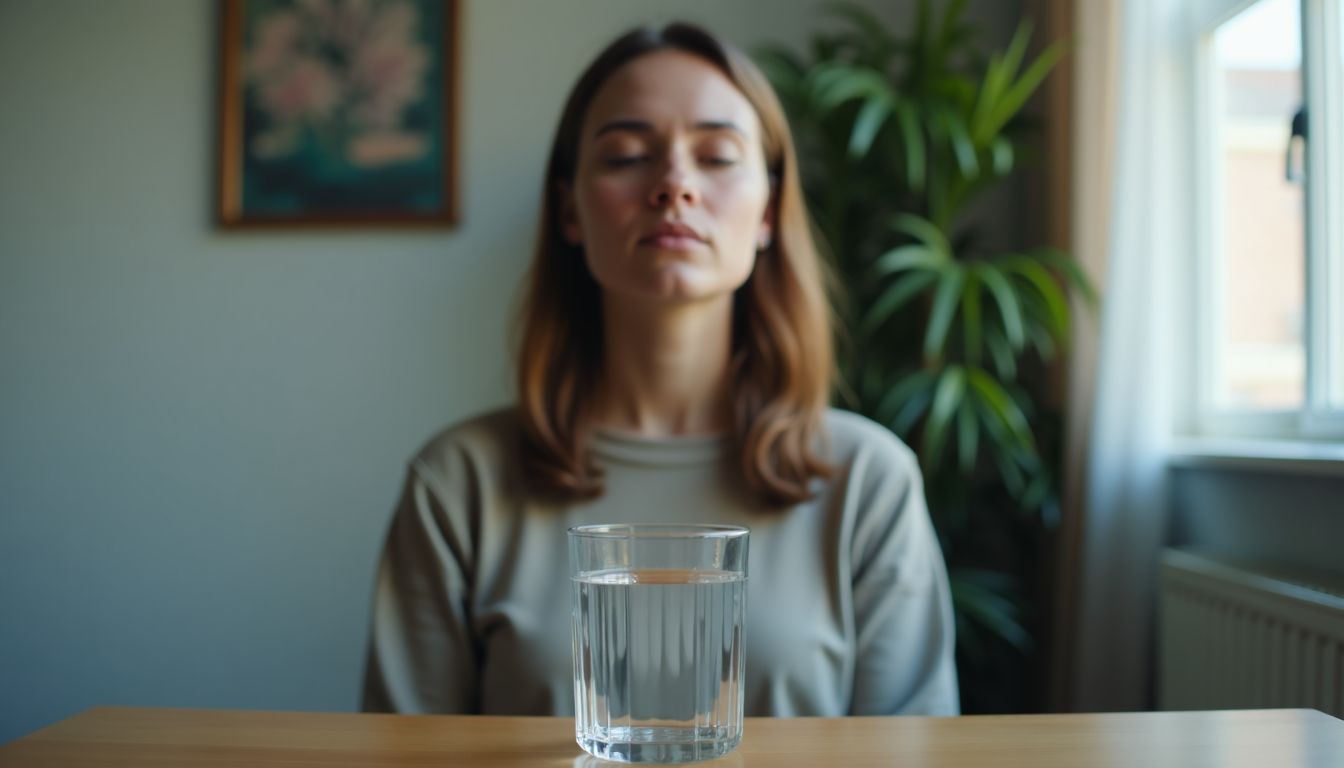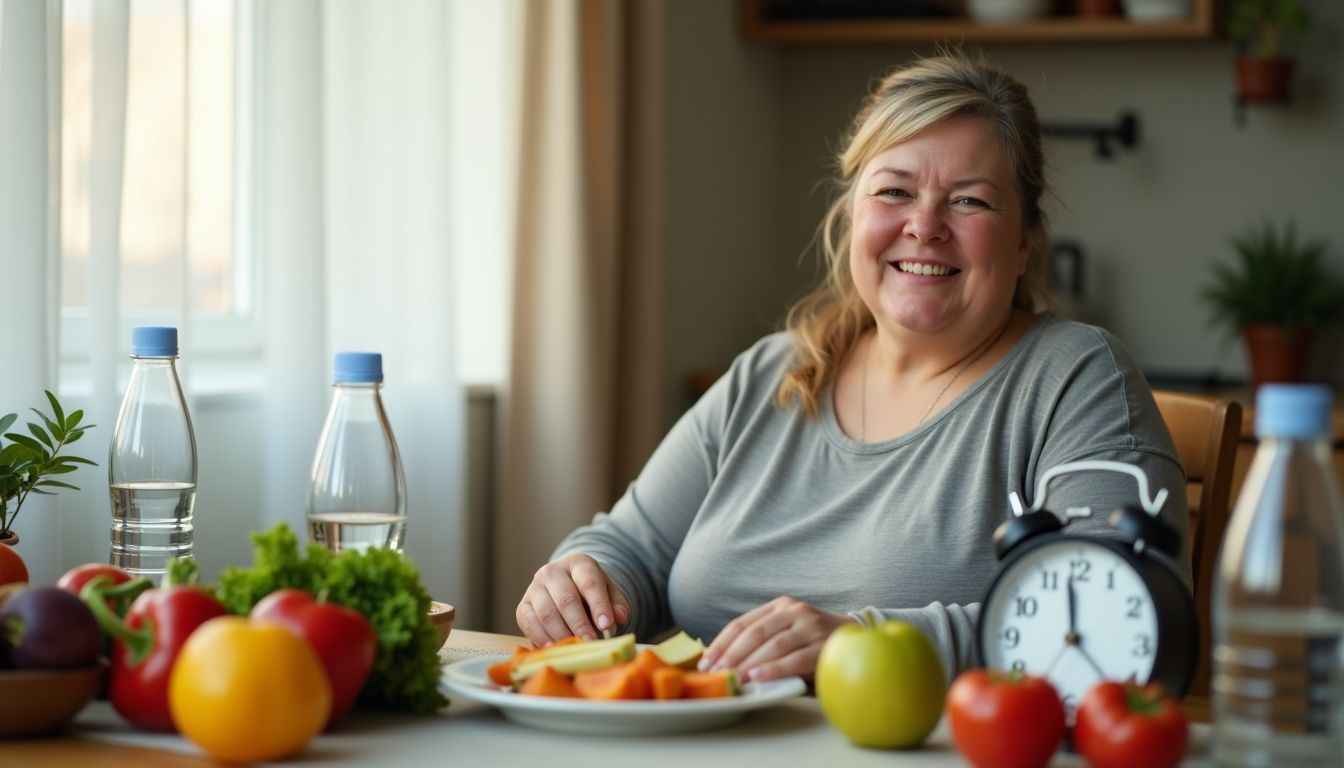
It’s time we all accept we have to Hydrate for Weight Loss to happen naturally. Hydration is an essential component of a healthy lifestyle, and it’s also important for weight loss.
In this article, we’ll explore the connection between hydration and weight loss and provide tips for how to stay hydrated for maximum weight loss results.
The Importance of Hydration in Weight Loss
Proper hydration plays a vital role in weight loss and overall well-being. Hydrating adequately throughout the day is essential for maintaining optimal body functions and supporting the body’s natural fat-burning processes. Hydration aids in digestion, nutrient absorption, and metabolism, ensuring that the body efficiently processes food and converts it into energy. By understanding the significance of hydration in weight loss, individuals can leverage this powerful tool to enhance their weight loss journey.
Why Hydrate for Weight Loss
Drinking enough water is important for weight loss for several reasons. First, water helps flush toxins out of the body and aids in digestion. When you’re dehydrated, your body retains water, which can lead to bloating and water weight gain.
In addition to digestion, water also plays a role in metabolism. When you’re dehydrated, your metabolism slows down, making it more difficult to burn calories and lose weight. Drinking enough water can help boost your metabolism and promote weight loss.
Electrolytes and Hydration: Hydrate for Weight Loss
Electrolytes are minerals in your body that help regulate fluid balance, nerve function, and muscle contractions. When you sweat or lose fluids through urination, you also lose electrolytes, which can lead to dehydration and fatigue. To stay properly hydrated, it’s important to replenish electrolytes along with water.
The most important electrolytes for hydration are sodium, potassium, and magnesium. Sodium helps regulate fluid balance in the body and is essential for nerve and muscle function. Potassium helps regulate fluid balance and also helps with muscle and nerve function. Magnesium is important for bone health and is involved in hundreds of biochemical reactions in the body, including regulating muscle and nerve function.
The Role of Hydration in Appetite Control
One key aspect of hydration in weight loss is its impact on appetite control. Staying adequately hydrated helps regulate hunger cues and can prevent overeating. Sometimes, thirst signals can be misinterpreted as hunger, leading to unnecessary calorie consumption. By regularly hydrating, individuals can maintain a sense of fullness and curb unnecessary snacking, promoting a calorie deficit that contributes to weight loss.
Hydration for Energy and Exercise Performance
Proper hydration is essential for sustaining energy levels and optimizing exercise performance during weight loss. When the body is well-hydrated, it can effectively transport nutrients and oxygen to muscles, improving endurance and reducing fatigue during physical activity. Hydration also helps regulate body temperature, preventing overheating during intense workouts. By staying hydrated, individuals can maximize their exercise potential, burn more calories, and accelerate weight loss.
Strategies to Hydrate for Weight Loss
To effectively hydrate for weight loss, it’s important to adopt certain strategies. Firstly, aim to drink water regularly throughout the day, even before feeling thirsty. Carry a reusable water bottle as a reminder to stay hydrated. Additionally, include hydrating foods with high water content, such as fruits and vegetables, in your diet. Monitoring urine color is also a helpful indicator of hydration levels; pale yellow or clear urine indicates good hydration. Lastly, be mindful of sugary drinks and excessive caffeine intake, as they can dehydrate the body and hinder weight loss progress.
Do’s
- Drink 8-10 glasses of water per day.
- Carry a water bottle with you.
- Flavor water with fruits or herbs.
- Eat water-rich foods.
- Monitor urine color.
- Seek medical advice if dehydrated.
Don’ts
- Avoid sugary drinks.
- Do not rely on thirst.
- Avoid excessive caffeine or alcohol.
- Don’t wait until thirsty to drink.
- Avoid diuretics without medical supervision.
- Do not drink excessive water.
Tips for Hydrate for Weight Loss
Now that we understand the importance of hydration and electrolytes for weight loss, let’s explore some tips for how to stay hydrated for maximum weight loss results.
Drink Enough Water
The most important tip for staying hydrated is to drink enough water. Aim for at least eight glasses of water per day, and more if you’re physically active or live in a hot climate.
Eat Hydrating Foods
In addition to drinking water, you can also stay hydrated by eating foods that are high in water content. Fruits and vegetables like watermelon, cucumbers, and strawberries are excellent sources of hydration.
Replenish Electrolytes
To replenish electrolytes lost through sweat and urination, consider drinking sports drinks or coconut water, which are high in electrolytes like sodium, potassium, and magnesium.
You can also try adding a pinch of sea salt or an electrolyte supplement to your water.
Avoid Sugary Drinks
Sugary drinks like soda and juice can be high in calories and sugar, which can contribute to weight gain. Instead, opt for water, unsweetened tea, or sparkling water with a splash of fruit juice for flavor.
Use a Hydration Tracker
Using a hydration tracker like an app or a water bottle with measurements can help you track your water intake and make sure you’re drinking enough water throughout the day.
Set Reminders
If you have trouble remembering to drink enough water throughout the day, set reminders on your phone or calendar to remind you to drink water at regular intervals.
Carry Water with You
Carrying a water bottle with you wherever you go can make it easier to stay hydrated throughout the day. Consider investing in a reusable water bottle and filling it up throughout the day.
FAQ: Hydrate for Weight Loss
Q1: Why is hydration important for weight loss? A1: Hydration is essential for weight loss as it supports various bodily functions and aids in maintaining a healthy metabolism. Proper hydration helps regulate appetite, promotes optimal digestion, and ensures efficient nutrient absorption. It also supports energy levels and exercise performance, allowing individuals to engage in physical activity for longer durations, burn calories effectively, and enhance their weight loss efforts.
Q2: How much water should I drink daily for weight loss? A2: The recommended daily water intake for weight loss can vary depending on factors such as body size, activity level, and climate. However, a general guideline is to consume at least 8 glasses (64 ounces) of water per day. It’s important to note that individual hydration needs may vary, and it’s advisable to listen to your body’s signals of thirst and adjust your water intake accordingly.
Q3: Can other fluids besides water contribute to hydration for weight loss? A3: While water is the best choice for hydration, other fluids can contribute to overall hydration as well. Drinks such as herbal tea, unsweetened beverages, and infused water can be included in your hydration routine. However, it’s important to limit or avoid sugary drinks, caffeinated beverages, and alcohol, as they may have diuretic effects or provide unnecessary calories that can hinder weight loss progress.
Q4: When is the best time to hydrate for weight loss? A4: Hydration should be a consistent practice throughout the day. It’s beneficial to drink water before meals, as it can help promote a feeling of fullness, potentially reducing calorie intake. Additionally, staying hydrated during physical activity is crucial to support performance and replace fluids lost through sweat. Remember to drink water before, during, and after exercise.
Q5: Can proper hydration alone lead to weight loss? A5: While proper hydration is an important factor in weight loss, it’s not the sole determinant. Weight loss occurs when there is a sustained calorie deficit achieved through a combination of factors, including a balanced diet, regular physical activity, and a healthy lifestyle. Hydration supports these efforts by optimizing bodily functions and promoting overall well-being, but it should be combined with other healthy habits for successful and sustainable weight loss.
Q6: Can dehydration hinder weight loss progress? A6: Yes, dehydration can hinder weight loss progress. When the body is dehydrated, it may affect metabolism, digestion, and energy levels, potentially slowing down weight loss. Dehydration can also lead to water retention, as the body holds onto fluids in response to insufficient water intake. Therefore, it is important to prioritize hydration to support weight loss efforts.
Q7: Are there any signs of dehydration to watch out for? A7: Yes, common signs of dehydration include feeling thirsty, dark-colored urine, dry mouth, fatigue, dizziness, and headaches. However, it’s important to note that thirst is a late indicator of dehydration, so it’s advisable to drink water regularly throughout the day rather than relying solely on thirst as a cue for hydration.
Q8: Can hydration improve skin health during weight loss? A8: Yes, proper hydration can contribute to improved skin health during weight loss. When the body is well-hydrated, the skin is better able to maintain its elasticity and appear more vibrant. Drinking an adequate amount of water can help keep the skin hydrated, reduce dryness, and promote a healthier complexion.
Q9: Can I overhydrate for weight loss? A9: While proper hydration is important, overhydration can have negative effects on the body. Drinking excessive amounts of water without proper electrolyte balance can lead to a condition called hyponatremia, which is characterized by low sodium levels in the blood. It’s important to maintain a balanced approach to hydration and listen to your body’s cues to avoid overhydration.
Q10: Should I consult a healthcare professional regarding hydration for weight loss? A10: If you have specific health concerns or medical conditions, it is advisable to consult a healthcare professional or registered dietitian regarding your hydration needs for weight loss. They can provide personalized guidance based on your individual circumstances and help ensure you’re hydrating in a way that supports your overall health and weight loss goals.
Conclusion and final thoughts 💭
Staying hydrated is an important component of weight loss and overall health. Drinking enough water and replenishing electrolytes can help flush toxins out of the body, aid in digestion, boost metabolism, and promote weight loss.
By drinking enough water, eating hydrating foods, replenishing electrolytes, avoiding sugary drinks, using a hydration tracker, setting reminders, and carrying water with you, you can stay hydrated for maximum weight loss results.
You may also like 📖
Kettlebell Upper Body Workouts to Lose Weight and Gain Muscle
Comparing the Best Wireless Bluetooth Headphones of 2023
How to Declutter and Style Your Home
Kettlebell Training: Mastering the Kettlebell Swing Common Mistakes to Avoid
How to Count Macros for Weight Loss and Muscle Gain: Burn Fat
Resistance Training for Weight Loss
What is Fasting?
Fasting Kickstart Guide
Types of Fasting




Leave a Reply